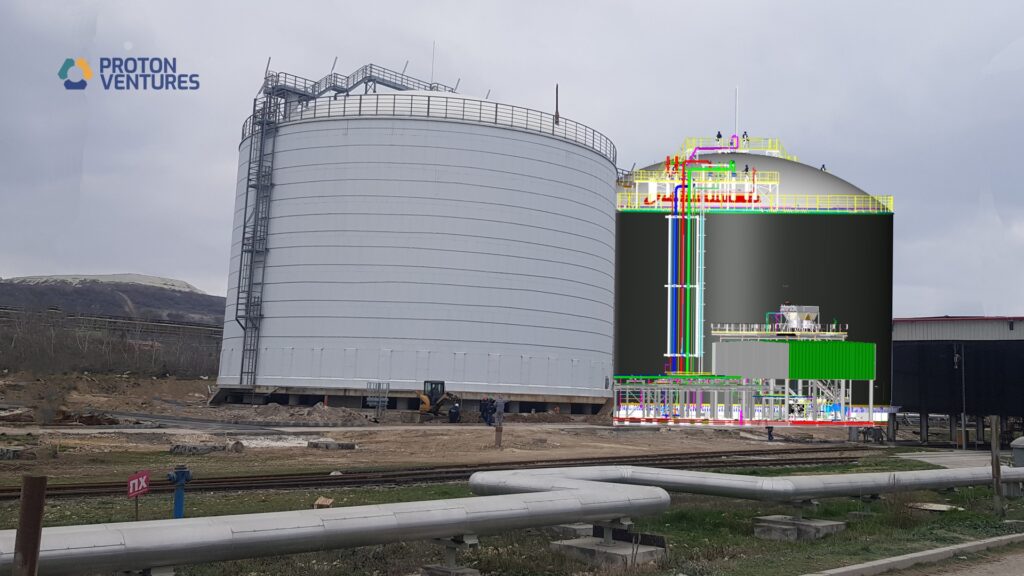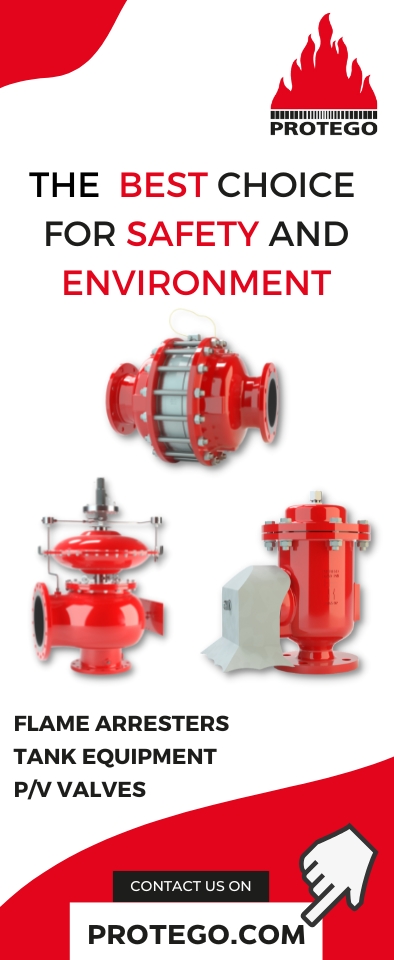Proton Ventures is an ammonia-dedicated engineering and project management company from the Netherlands that covers the entire green ammonia value chain. Proton Ventures’ know-how of ammonia operations has been in its DNA since its inception. Back in the 90’s, the founder of Proton Ventures, Hans Vrijenhoef, was the terminal manager at the Kemira ammonia plant and terminal manager and later co-owner of the Microchemie terminal which today is OCI’s ammonia terminal in Rotterdam, Netherlands. Since starting in 2002, Proton Ventures has gathered talented engineers specialising in ammonia technology and has grown to a team of nearly 70 employees today.
 Starting from both small and large scale green ammonia production (including electrolysis), to storage and handling, decomposition (cracking) and ammonia applications such as de-NOx, fertilizer and ammonia-to-power.
Starting from both small and large scale green ammonia production (including electrolysis), to storage and handling, decomposition (cracking) and ammonia applications such as de-NOx, fertilizer and ammonia-to-power.
Proton Ventures is one of the few terminal designers with operational reference projects (e.g. Estonia, Bulgaria and Morocco), from feasibility study to FEED (including BEP and DEP) and EPC. It also has experience in developing decomposition technology. This allows it to have a better understanding and integrate cracking licensor’s technology into terminal design and advise clients on the best configuration. In-house ammonia experts for commissioning and start-up (tank cool-down) as well as training of operations and maintenance personnel add immense value to the end-user/operator.
Ammonia Storage & Handling
Proton Ventures has been invited to co- chair the revision of the Dutch ammonia storage and handling standard, PGS-12. With the increasing import of large quantities of hydrogen in the form of ammonia, the demand for secure ammonia terminals and handling facilities in the Netherlands will rise. Therefore, there is a need to modernise the PGS-12 ‘Ammonia – Storage in Shipping’ to create a clear guideline for safe ammonia terminals in the Netherlands, which undoubtedly will be embraced internationally.
The four-chair working group, consisting of delegates from Yara International, OCI, Vopak, and Proton Ventures spent most of the second half 2023 improving the PGS-12 standard together with stakeholders such as DCMR, the environmental and permitting authority of Rotterdam, and the fire brigade and made it ready for publication early this year. Proton Ventures will be joining a panel at StocExpo 2024 to present the new standard and take questions from the audience; a must-attend event.
Updating Standards: PGS-12
The updated standard for new ammonia terminals introduces multiple changes aimed at improving safety and durability. These include:
- Extending the design lifetime to 50 years
- Implementing full containment tanks instead of double containment
- Eliminating bottom penetrations from the inner tank
- Incorporating in-tank pumps for improved operational efficiency
- Utilising a concrete outer wall to shield the tank from external pressure waves and projectiles
- Omitting insulation in the annular space
- Adopting a tabletop design that refrains from heat tracing in favour of natural ventilation underneath the tank
This new PGS-12 sets the highest standards for ammonia terminal design and operation worldwide. An English version of the document is expected to circulate within the second quarter of 2024, facilitating its use and adoption from foreign designers and authorities too.
Although PGS-12 is the specific design standard for the Netherlands (mostly large-scale, import facilitating terminals in industrial complexes in the vicinity of urban areas), this doesn’t mean that this is the only safe design of an ammonia storage and handling facility. Proton Ventures is able to design, in close cooperation with its customers and local authorities, solutions that meet various international standards such as EN 14620 and API620/625.









